Healthcare - Telemedicine
Infuse intelligence and efficiency in remote medical care with AI/ML
Advancement in information technology, video imaging, and mobile devices enables the delivery of healthcare services at home or in a remote location. Telemedicine helped hospitals to free up resources for other on-premise procedures and face-to-face interactions with critical patients. It also has increased patient's convenience by eliminating wait time, travel time etc. Telemedicine is one of the newest industries to utilize AI widely. It will be simpler for physicians to assess, screen, and diagnose many illnesses remotely as AI's use in telemedicine grows. Usually, physicians take inputs from the patient for diagnosis.
But with Big Data processing, physicians diagnose with insights obtained from records of multiple patients with similar illness profile. Bots in Healthcare can offer motivational messages, appointment or medicine reminders, and health information for the elderly in their homes. AI integrated into wearable devices helps monitor patients' conditions in real-time and create alerts when anomalies are detected. Machine learning models process live video of patients captured by smartphone’s camera to take analyze patient’s pulse and the respiratory signal. Advancements in edge computing will enable real-time on-device analytics to identify and communicate critical health issues to physicians quickly.
Domains
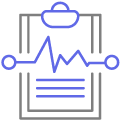
Prescription Analysis
Automated, NLP-powered identification of the date, physician’s name and registration details, patient information, medicines, and dosage.
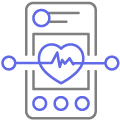
Remote Patient Monitoring
Continuous, real-time monitoring of vital parameters with Edge AI devices, predictive analytics, automated alerts.
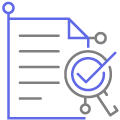
Patient Support
Smart, connected wearables to guide patients and caregivers on medicine intake and exercise routines, personalized dietary advice based on medical history and current conditions.

AI Chatbots
NLP-powered chatbot for initial screening, automated responses to patients' queries.
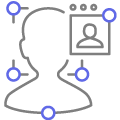
Lab Report Analysis
AI/ML-assisted extraction of the type of tests and values, comparison of historical records, correlation of data among test categories, and identification of critical markers.
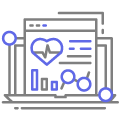
AI-assisted Diagnosis
ML models for improved accuracy in diagnostics, understanding of physicians' methodologies for personalized guidance.







